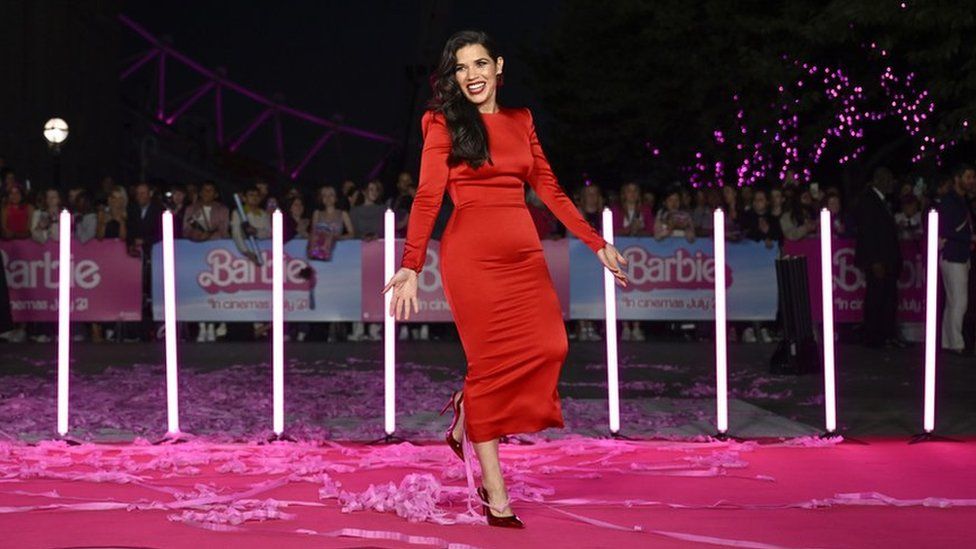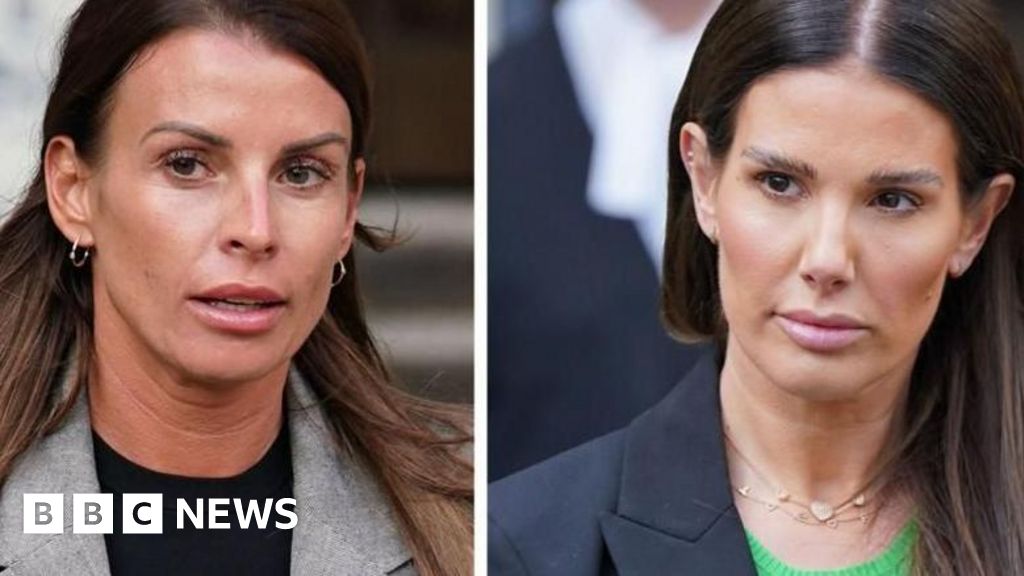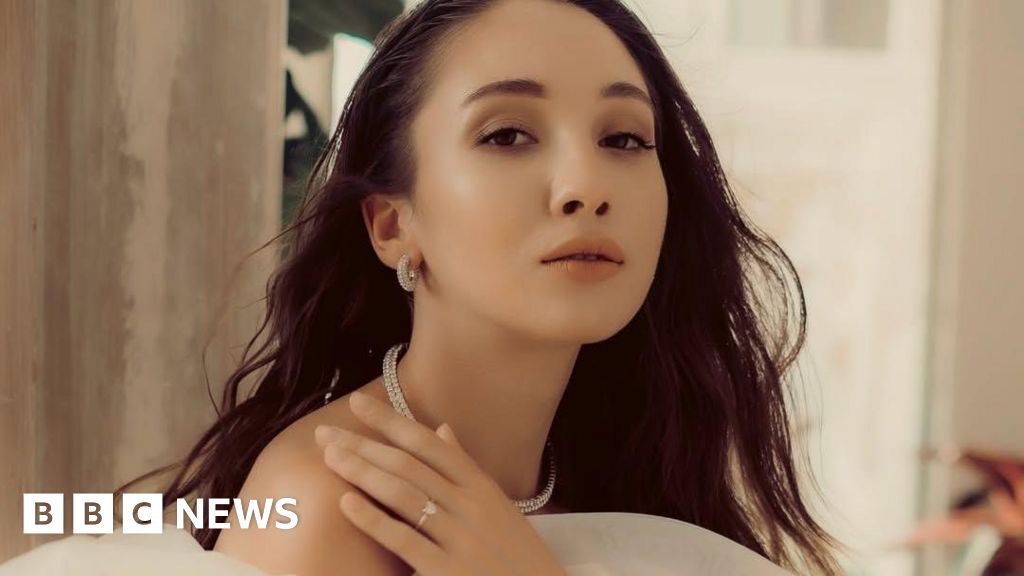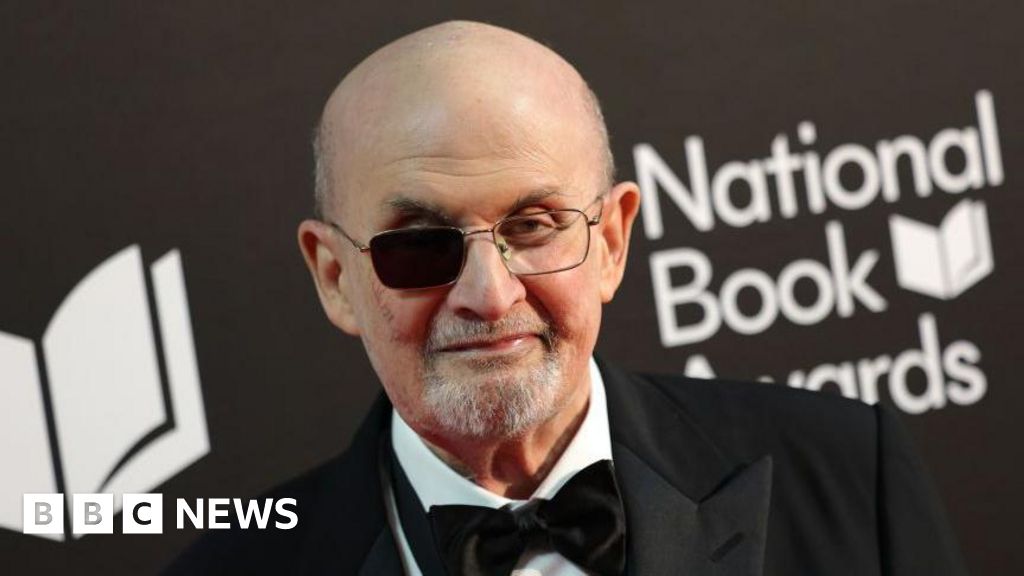ARTICLE AD BOX

By Laura García and Beatriz de la Pava
BBC 100 Women
From starring in comedy favourite Ugly Betty, to a lead role in this year's blockbuster Barbie, America Ferrera has had a "fairy tale" journey to success.
She's the first - and only - Latina to win an Emmy for a leading role.
But she's also keenly aware that she's almost unique in carving out these achievements.
"While I enjoy an incredible career full of opportunity that I have fought hard for and worked hard for," she tells BBC 100 Women, "I know that the vast reality for Latinos in this industry is that it's as difficult today as it was 16 years ago, or even 22 years ago when I started out."
Latinos are the largest minority group in the US, making up about 20% of the population. But that hasn't translated into on-screen representation, Ferrera says.
"They are anomalies, these moments where Latinos get to shine. And of course we've had those moments, but I feel like we've all been waiting a really long time for the watershed", says Ferrera, who has been named one of the BBC's 100 Women for 2023.
"It's complicated to reconcile the almost fairy tale story of my journey with what I know is the reality for the vast majority of people like me."
Image source, Poderistas
Image caption,Ferrera says she found it hard to negotiate her Latino heritage with American mainstream culture
Born in California to Honduran immigrants, Ferrera says she grew up "believing in the American dream".
"I had been taught so early on by my parents, specifically my mother, that taking advantage of every opportunity to get an education was why they immigrated to the United States," she says.
But navigating between her heritage and mainstream culture made it "confusing" to establish her identity, she says.
Being called America didn't make things any easier either.
"Everyone assumed that it was it a patriotic homage by my immigrant parents. But the truth is, in Latin America the name America is much more common," says the actress, who is named after her mother.
Her start in the entertainment industry brought its own set of challenges.
Before landing her first role aged 17, she says she was told she was "too brown, too short, too chubby, or too ethnic-looking" for the industry.
Image source, Getty Images
Image caption,Ferrera as a braces-wearing fashion magazine assistant in hit series Ugly Betty
Her breakthrough role as Betty Suárez on ABC's hit comedy Ugly Betty, in 2006, earned her a Golden Globe, a Screen Actors Guild award and that Emmy - making her the only Latina woman to win one for a leading role.
"It's 2023, and I'm still the only one which I think, you know, points exactly to the issue. It took so long because the opportunities don't exist," says Ferrera.
"How lucky and fortunate I have been in my career to be coming up in a time where I was met with the sparse opportunities that exist for a young Latina actress to get to be the lead… much less a lead that is self-determining and is not represented as a as a poor immigrant criminal, or a hyper-sexualized Latina."
Image source, Getty Images
More career success came with the hit workplace comedy series Superstore, which she starred in and produced.
This year she also made headlines for her role in director Greta Gerwig's blockbuster Barbie, where she delivered an impassioned monologue that resonated with women around the world.
Her scene-stealing speech - which reportedly took between 30 and 50 takes to perfect - sees Ferrera's character Gloria grapple with the double standards and societal pressures that women face.
"Feelings like anger and resentment and righteousness, or even joy and silliness and fun… to get to witness those expressions [on screen] is a cathartic feeling," says Ferrera.
"And for so many of us, there are so many of those experiences that have never been shared in mainstream media."
Image source, Getty Images
Image caption,This year the actress was recognised for her Barbie monologue, about the double standards that women face
She says roles like this one can create spaces for women, and women of colour in particular, to validate their own life experiences.
"We often have to divorce ourselves from parts of ourselves that are not welcome," she says.
"The truth is that so many of us underrepresented communities are still just fighting to be visible".
At 39, Ferrera is set to make her feature directorial debut next year with I Am Not Your Perfect Mexican Daughter, an adaptation of Erika Sánchez's best-selling novel about a first-generation Latino immigrant living in an impoverished neighbourhood in Chicago.
The film's themes are close to Ferrera's activism.
Image source, Harness
Image caption,A long-time activist, Ferrera co-founded Harness, an organization that works on issues of social justice and equity
She co-founded Harness, an organisation that amplifies the voices and experiences of underrepresented communities in popular culture, especially around issues of social justice.
She's also passionate about political engagement and spends time going around minority communities, encouraging involvement.
In the lead-up to the 2020 presidential elections, Ferrera launched an Instagram series to unpack and demystify the voting process, where she addressed topics like voter suppression for black, brown, female and young voters with clarity and humour.
Now she is looking ahead to the 2024 ballot.
"My focus in my domestic politics is about keeping people engaged in the process," she says.
"I think one of the biggest dangers to democracy is just our despondency, the feeling that it won't make a difference if we are paying attention and showing up, when in fact those outcomes most certainly create the conditions of our lives."
Image source, Harness
Image caption,Ferrera is an icon for many young Latinas in the US
Recently she invested in an all-female professional football team, founded by fellow actress Natalie Portman in Ferrera's home city, Los Angeles, that strives to guarantee equal pay and conditions for female athletes.
"It's very hard to change when the systems that remain are still set up to benefit people who've always been in positions of power. We have to see a power shift, we have to see real power move," she says.
Suddenly she sounds excited, ready to challenge the status quo.
"I have a proposal!" she says.
"We take all the money people spend on doing diversity panels and just use all that money to hire women and people of colour to make things.
"It's really not that complicated... it isn't about charity. It's about good business."
Video filmed by Andrew Blum. Edited by Laura García.
BBC 100 Women names 100 inspiring and influential women around the world every year. Follow BBC 100 Women on Instagram and Facebook. Join the conversation using #BBC100Women.

 1 year ago
37
1 year ago
37








 English (US) ·
English (US) ·